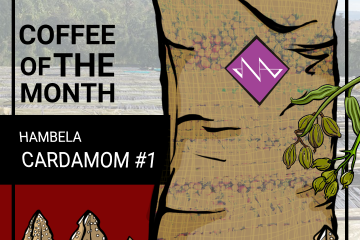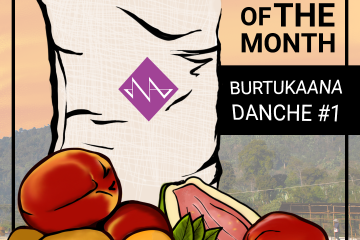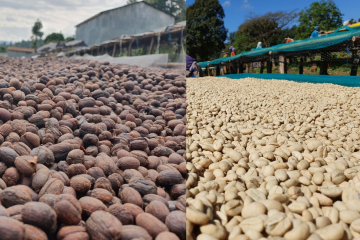We are introducing a selection of coffees for the first time, through a new project were we are working with a single farm. The farm is able to produce lot separation according to different parts of the farm and by varietal, with complete traceability. This is the first opportunity these coffees are being exposed to the market in this way. We have been working with Mohammed Lalo over the four or so months I travelled to and from, as well as around Ethiopia. The anticipation of the final results from our investment and the investment from our new partner has been mounting.
We met Mohammed and Mehbuba Lalo back in November last year, we sat down together at a hotel lobby in Addis to talk about who we were and what each of us did and how we might be able to work together. It is always hard for both parties to know at this stage what the outcome really will be. While for us pursuing the possibility of a new supplier and fantastic coffee is always a part of what we do and investing in that is not particularly difficult, it is our business. For the Lalo’s I can imagine we were in some ways a form of branching out.
I travelled to Jimma for the first time with Mohammed in December 2015, Mohammed has previously worked for the Ethiopian Institute of Agricultural Research. We flew into Jimma and their farm is a further 3hr or so 120km drive North West towards Atnago. It is here where Mohammed and his family have 230 hectares of farm land with a processing station.
The farm manager Mohammed Museyen walked us through the farm and I saw red, ripe cherries like I have barely seen before never mind in Ethiopia. The farm was immaculately kept and the 33 blocks clearly defined, Mohammed Museyen constantly reaching for any small piece of debris to remove or when we stopped at a tree and he answered my question his hands would be busy pruning.
When I visited their dry mill in Atnago Mohammed Lalo gladly showed us the mills equipment and along with the mill manager, explained how they have been milling their coffees. We sat down together to discuss the possibilities of lot separation throughout the milling process and how the integrity of this could be maintained.
We talked about why this is important to us, that once a lot of x number of bags has been marked and sampled and we have done so for many different lots. We would cup through these to make a selection of those showing the most potential, hence we needed this lot separation to be maintained and the coffee to be milled accordingly. That this was both for us to have a representative sample to make decisions on but also because the coffees we would choose would establish the farm in a new market.
When we are working with a new supplier there are key parts of the selection process and production that we can quite often have very specific requirements from, and that can be different from how a supplier has been working in the past. This can range from the above mentioned lot separation, to also advocating for the use of specific dry mills that we know have good equipment and procedures. In many instances in the initial phases of investment in a new relationship many of these requirements are additional to how people are accustomed to working, so it can take a season or so to clearly identify and get these operating at an optimum.
You can usually expect that not everything will be perfect the first time around!
We have been able to work together throughout the 2015/16 season and the entire process of assessing and selecting coffees, to milling and bagging, and eventually shipping these coffees with a transparency and a willingness from the Lalo’s which we believe will be reflected in the coffees we have now but even more so in the quality of coffee we believe we can achieve in the future.
The Lalo coffees, both washed and natural are now in stock and available!






